Entering the Work Force with a New 401(k) Plan: Learn the Features and Benefits
If you are entering the workforce, you may have the opportunity to open a 401(k) through your new employer. In some cases, that employer will also offer matching contribution funds up to a certain percentage. While it sounds like a no-brainer to take advantage of these benefits early, many younger employees do not participate in their employer's 401(k) plan.
It is essential to learn the benefit of saving early and often to set yourself up for success in the future. Here are some key benefits of starting to contribute in a 401(k) in your early 20s.
Retirement Plans Offer Tax Breaks
One of the most important reasons to start participating in a retirement plan early is the tax breaks that come with it. Every young person remembers the feeling of getting their first pay stub and seeing a large percentage of their pay taken out for taxes. By participating in a 401(k), you can save money before those taxes are taken out.
The money you put away now has growth potential due to compound interest and will not be taxed until you begin taking distributions from their account during retirement.
Potential Employer Contributions
Another incentive of participating in a 401(k) from a young age is employer contributions. Every employer is different, but many will offer some type of matching contribution for those who choose to participate in their sponsored retirement plan. Employer contributions are essentially “free money” for your retirement savings.
Say your employer will match contributions one-to-one for up to 4% of your paycheck—anything you contribute up to 4% will be doubled. In this scenario, you should aim to contribute at least 4% of your paycheck to take full advantage of what many people consider to be “free money.”
Automatic Contributions
Not only is opening a 401(k) a smart idea, it is also very easy to contribute to one. Contributions are taken from your paycheck pre-tax and deposited directly into your retirement account. If you start saving early on, you probably will not even notice a difference in your take-home pay. Most 401(k) plans also make it easy to automatically increase contribution rates each year—something that many financial professionals suggest to effectively compound retirement savings.
Comfort in Retirement
Lastly, the earlier you start to save, the more likely you will be able to comfortably retire when you get older. Compound interest builds over time, so the longer the account is open, the greater potential for substantial growth. And starting now will allow you to build a good habit of saving a little bit every month. Even if you stop contributing because of unemployment or financial strain, the money you have already contributed has the ability to continue to grow.
Alternative Options for Retirement Plans
If your employer does not offer a sponsored 401(k) plan, you should consider an IRA plan instead. IRA plans offer similar benefits to traditional 401(k)s—they gain interest over time, can take automatic contributions from paychecks, and involve tax benefits. You can choose from a traditional IRA, which is tax-deductible, or a Roth IRA, which is not tax-deductible but has the benefit of non-taxable distributions during retirement.
Since these are independent plans, you can keep them open even if you start a new job that offers a 401(k). Many financial professionals even recommend keeping retirement savings in more than one type of account.
Whatever career path you choose, saving for retirement is an important step in your life.
Affinity Capital, through our Young Investor Program, works with many professionals making first time important decisions about finances. Contact us for a complimentary initial analysis and let us help you plan your savings strategy.

